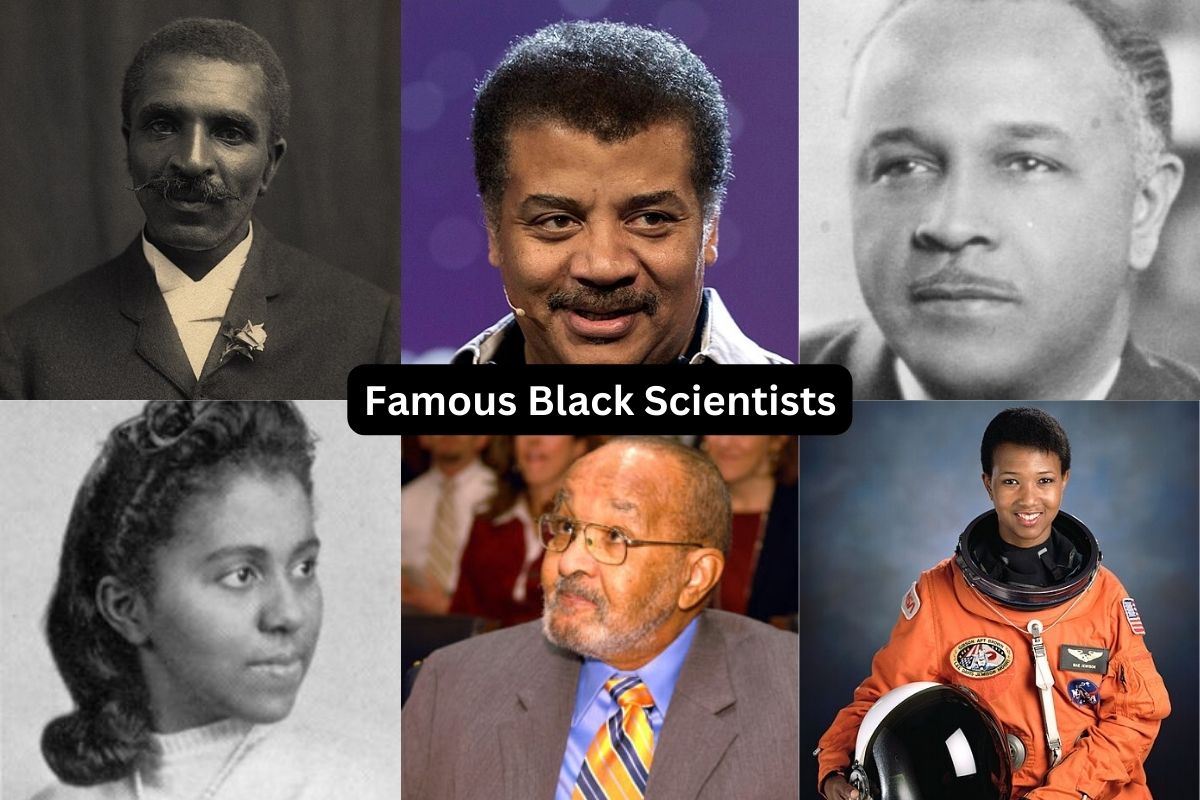Black scientists have made significant contributions to the scientific world throughout history. Their groundbreaking discoveries and inventions have paved the way for future generations and have helped shape our understanding of the world around us. In this article, we will explore the lives and achievements of some of the most famous black scientists.
From astrophysics to medicine, these scientists have made significant contributions to their respective fields. Their work has not only advanced scientific knowledge but has also challenged societal norms and stereotypes.
Through their perseverance and dedication, they have broken down barriers and opened doors for future generations of scientists.
Despite facing discrimination and obstacles throughout their careers, these scientists have made significant strides in their fields. Their work has not only contributed to scientific progress but has also helped to inspire and empower individuals from underrepresented communities.
By highlighting their achievements, we hope to shed light on the important contributions of black scientists and inspire future generations to pursue scientific careers.
Famous Black Scientists
1. George Washington Carver
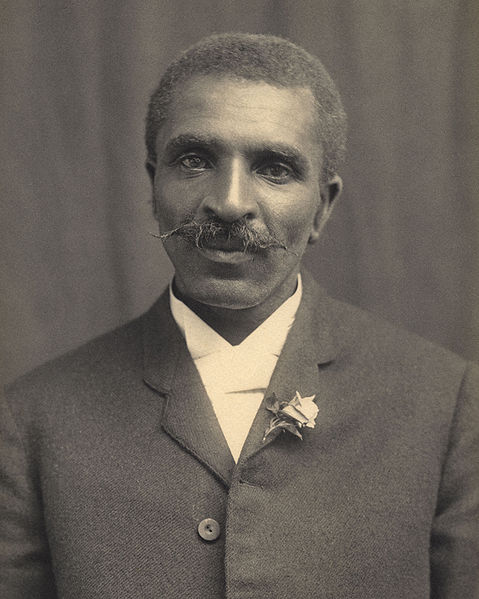
George Washington Carver was an American agricultural scientist and inventor who was born into slavery in the early 1860s. He is widely regarded as one of the most important black scientists in history.
Carver’s work focused on developing new uses for crops, particularly peanuts and sweet potatoes. He believed that these crops could be used to provide food, fuel, and other products, and he developed a wide range of new uses for them.
Also Read:
Some of Carver’s most famous inventions include peanut butter, peanut oil, and various types of sweet potato products. He also developed new methods for crop rotation and soil conservation, which helped farmers to improve their yields and protect their land.
In addition to his scientific work, Carver was also a gifted teacher and mentor. He taught at the Tuskegee Institute for many years, where he inspired and educated countless students.
Carver’s legacy continues to be felt today, and he is remembered as a pioneer in the field of agricultural science. His work helped to improve the lives of farmers and consumers alike, and his many inventions and innovations continue to be used and enjoyed around the world.
2. Percy Lavon Julian
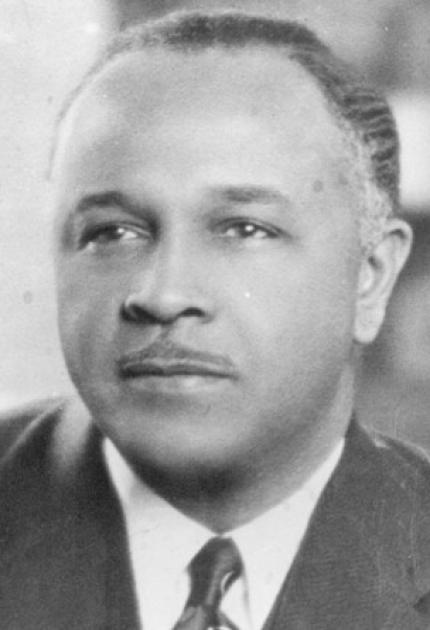
Percy Lavon Julian was an American chemist who made significant contributions to the field of organic chemistry. He is known for his work on synthesizing drugs from plants, particularly soybeans.
Julian was born in Montgomery, Alabama, in 1899 and faced significant racial discrimination throughout his life.
Julian received his bachelor’s degree from DePauw University in Indiana and his master’s degree from Harvard University. He then went on to complete his Ph.D. at the University of Vienna in Austria.
After completing his education, Julian worked for several companies, including Glidden Company and his own company, Julian Laboratories.
One of Julian’s most significant contributions was his synthesis of physostigmine, a drug used to treat glaucoma. He also developed a way to extract steroids from soybeans, which led to the creation of several important drugs, including cortisone.
Julian’s work on synthesizing drugs from plants helped to make medicine more affordable and accessible to people around the world.
Despite facing discrimination throughout his career, Julian continued to make groundbreaking contributions to the field of organic chemistry. He was awarded numerous honors for his work, including the National Medal of Science in 1973. Today, Julian is remembered as one of the most important black scientists in history.
3. Marie Maynard Daly
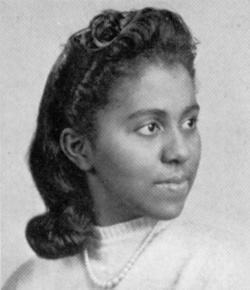
Marie Maynard Daly was an African-American biochemist who made significant contributions to the field of science. She was born on April 16, 1921, in Queens, New York, and was the first African-American woman to earn a Ph.D. in chemistry in the United States.
Daly’s research focused on understanding the role of the cell nucleus in protein synthesis. She discovered that the concentration of nucleic acids in the nucleus of a cell was much higher than previously thought. This finding helped to explain how genetic information is transmitted from one generation to the next.
In addition to her research, Daly was also a passionate educator. She taught at Howard University and later at the Albert Einstein College of Medicine. She was committed to increasing the representation of minorities in science and worked tirelessly to promote science education in underprivileged communities.
Daly’s contributions to science were recognized with numerous awards and accolades throughout her career. She was elected to the National Academy of Sciences in 1988 and was awarded the National Medal of Science in 1991.
Marie Maynard Daly’s groundbreaking research and dedication to science education have had a lasting impact on the field of biochemistry and on the lives of countless students and scientists.
4. Mae Jemison
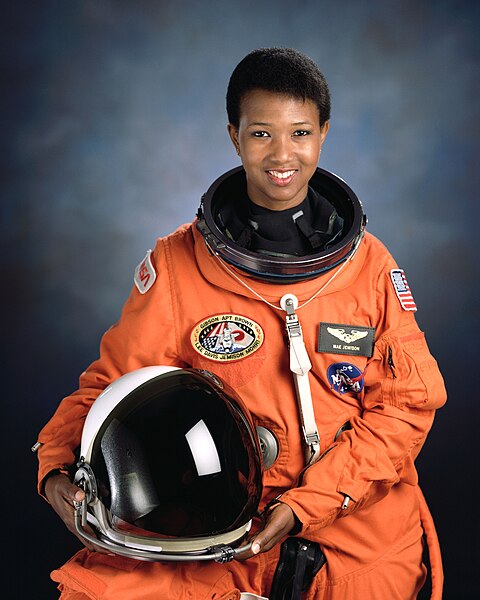
Mae Jemison is an American engineer, physician, and former NASA astronaut. She was the first African American woman to travel to space, serving as a mission specialist on the Space Shuttle Endeavour in 1992.
Jemison was born in Alabama in 1956 and grew up in Chicago. She graduated from Stanford University with a degree in chemical engineering and later earned a medical degree from Cornell University. Jemison worked as a general practitioner before being selected by NASA in 1987 to join the astronaut corps.
During her time at NASA, Jemison conducted experiments on weightlessness and motion sickness, and also worked on developing new space suits and other equipment.
After leaving NASA in 1993, she founded the Jemison Group, a technology consulting firm that focuses on using science and technology to solve social and environmental problems.
In addition to her work in space and technology, Jemison is also a strong advocate for education and science literacy. She has written several books and given numerous speeches on these topics, emphasizing the importance of diversity and inclusion in STEM fields.
Mae Jemison is a trailblazer in the fields of science, engineering, and space exploration, and continues to inspire future generations of scientists and explorers.
5. Ernest Everett Just
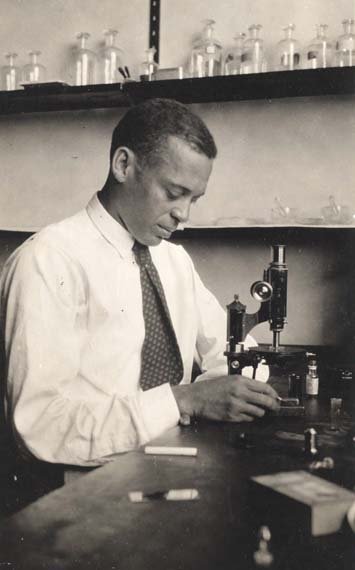
Ernest Everett Just was a prominent African American biologist and zoologist. He was born on August 14, 1883, in Charleston, South Carolina. Just was an exceptional student and received his Bachelor’s degree from Dartmouth College in 1907. He later earned his Ph.D. in Zoology from the University of Chicago.
Just was known for his research on the fertilization process in marine organisms. He discovered that the cell membrane plays a crucial role in the fertilization process. Just also studied the effects of environmental changes on marine organisms and contributed significantly to the field of cell biology.
Despite facing discrimination and racism, Just continued to pursue his passion for science. He worked at various institutions, including Howard University, where he established the Department of Zoology. Just was also a member of the National Academy of Sciences and received numerous awards for his contributions to science.
Ernest Everett Just’s legacy continues to inspire many young scientists today. He is remembered for his groundbreaking research and his perseverance in the face of adversity.
6. Emmett Chappelle
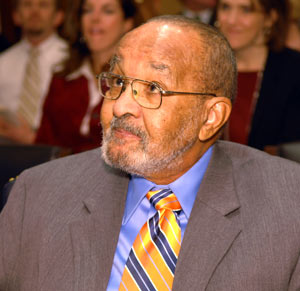
Emmett Chappelle was an American biochemist and NASA researcher. He was born on October 25, 1925, in Phoenix, Arizona, and passed away on October 14, 2019, in Baltimore, Maryland.
Chappelle was known for his groundbreaking work in the field of bioluminescence, the production and emission of light by living organisms. He was particularly interested in the bioluminescence of fireflies and the marine dinoflagellate Gonyaulax polyedra.
In the 1960s, Chappelle joined NASA’s Goddard Space Flight Center, where he worked on developing methods to detect life on other planets. He was part of the team that developed the Viking Lander’s biological experiments, which were sent to Mars in 1976.
Chappelle’s research also led to the development of a handheld device that could detect bacterial contamination in water. This device was used by NASA to ensure the safety of the water supply on the Apollo and Space Shuttle missions.
Throughout his career, Chappelle received numerous awards and honors for his contributions to science, including the NASA Exceptional Scientific Achievement Medal and the Presidential Award for Excellence in Science, Mathematics, and Engineering Mentoring.
Emmett Chappelle’s work in bioluminescence and astrobiology has had a significant impact on the field of science. His legacy continues to inspire future generations of scientists and researchers.
7. Charles Henry Turner
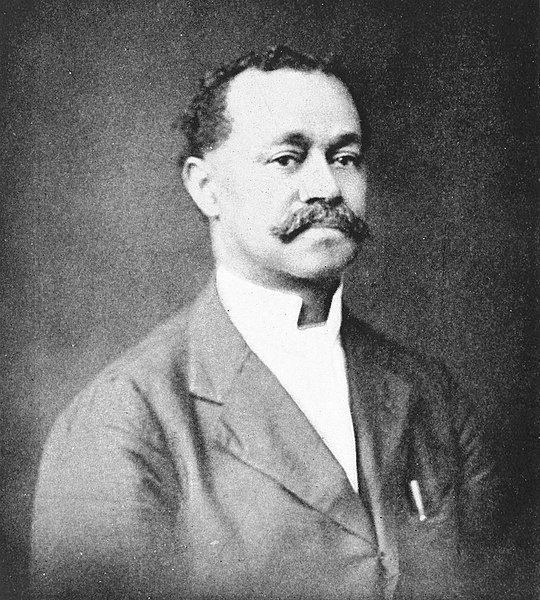
Charles Henry Turner was an American biologist, zoologist, and comparative psychologist. He was born in Cincinnati, Ohio, in 1867 and was the first African American to earn a Ph.D. in zoology from the University of Chicago.
Turner is known for his pioneering research on insects, particularly bees and ants. He conducted experiments to study their behavior and communication, and his work contributed significantly to the understanding of insect cognition.
One of Turner’s most notable experiments involved training honeybees to distinguish between colors. He found that bees could learn to associate a particular color with a food reward, demonstrating that they were capable of visual discrimination and learning.
Turner also studied the behavior of ants and discovered that they used pheromones to communicate with each other. He observed that ants would follow a trail of pheromones left by other ants to locate food sources.
Despite his groundbreaking research, Turner faced significant obstacles due to racial discrimination. He was often denied access to academic and research opportunities because of his race, and his work was not widely recognized during his lifetime.
Today, Turner is recognized as one of the most important scientists in the field of insect behavior and cognition. His legacy has inspired generations of scientists and serves as a reminder of the importance of diversity in science.
8. Benjamin Banneker
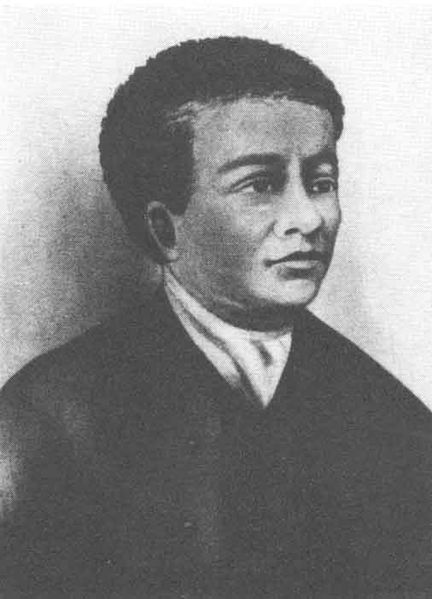
Benjamin Banneker was a self-taught black mathematician, astronomer, and inventor. Born in Maryland in 1731, Banneker was the son of a free African American woman and a former slave. Despite having limited formal education, he showed a remarkable aptitude for mathematics and science from an early age.
Banneker is best known for his work on the design and construction of the first clock made entirely in America. He was inspired to create the clock after seeing a pocket watch owned by a friend.
Banneker spent two years studying clockmaking and designing his own clock, which was completed in 1753. The clock was a remarkable achievement for its time, and it continued to keep accurate time for more than 20 years.
In addition to his work on the clock, Banneker was also an accomplished astronomer. He published several almanacs that contained detailed astronomical calculations, including the positions of the planets and the phases of the moon.
His almanacs were widely read and respected, and they helped to establish his reputation as one of the leading scientists of his time.
Despite facing significant racial discrimination during his lifetime, Banneker remained committed to his work and his community. He was a vocal opponent of slavery and a strong advocate for civil rights.
His legacy continues to inspire future generations of scientists and activists, and he remains one of the most important figures in the history of African American science.
9. Neil deGrasse Tyson
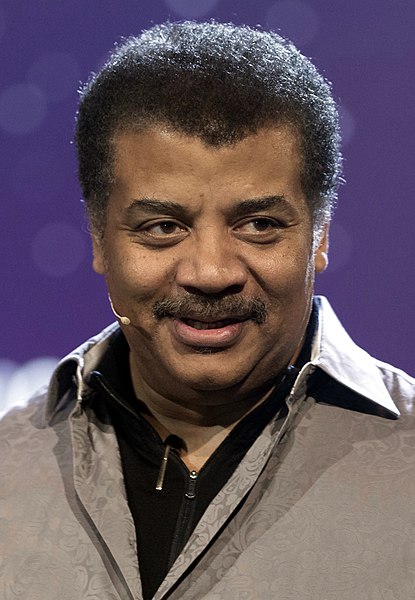
Neil deGrasse Tyson is a renowned astrophysicist, science communicator, and author. He was born in New York City in 1958 and grew up in the Bronx.
Tyson’s interest in astronomy began when he was just nine years old, after visiting the Hayden Planetarium at the American Museum of Natural History in New York City.
Tyson is known for his ability to communicate complex scientific concepts in a way that is accessible to the general public. He has hosted several popular science TV shows, including “NOVA scienceNOW” and “Cosmos: A Spacetime Odyssey.” In addition to his work as a science communicator, Tyson is also a respected researcher in the field of astrophysics.
One of Tyson’s most notable accomplishments was his role in the demotion of Pluto from planet status. As a member of the International Astronomical Union’s committee on the definition of a planet, Tyson was a vocal proponent of the decision to reclassify Pluto as a “dwarf planet.”
Tyson has received numerous awards and honors for his contributions to science and science education, including the NASA Distinguished Public Service Medal and the Isaac Asimov Award from the American Humanist Association. He is also a frequent guest on TV talk shows and news programs, where he provides expert commentary on scientific topics.
Neil deGrasse Tyson is widely regarded as one of the most influential and inspiring figures in science today. His passion for astronomy and commitment to science education have helped to make science more accessible and engaging for people of all ages and backgrounds.
10. Norbert Rillieux
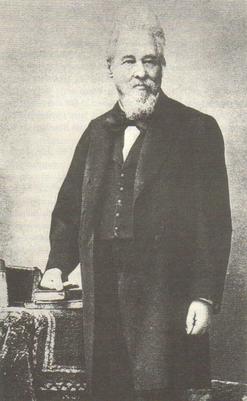
Norbert Rillieux was a prominent inventor and engineer who contributed significantly to the sugar refining industry. Born on March 17, 1806, in New Orleans, Louisiana, Rillieux was the son of a French plantation owner and a slave mother. Despite being born into slavery, he was able to gain his freedom and pursue his education.
Rillieux is best known for his invention of the multiple-effect evaporator, which revolutionized the sugar refining process. This device was able to evaporate water from sugar cane juice more efficiently and at a lower cost than previous methods. As a result, it greatly increased the profitability of sugar refining, making it a more accessible industry for small-scale producers.
In addition to his work in the sugar refining industry, Rillieux also contributed to the field of steam engine design. He designed a steam engine that was more efficient than previous models, which was used to power the multiple-effect evaporator.
Despite his significant contributions to the fields of engineering and science, Rillieux faced discrimination and racism throughout his life. He was often denied credit for his inventions and was excluded from professional organizations due to his race. However, his legacy lives on as a pioneer in the field of chemical engineering and a trailblazer for Black scientists and inventors.
